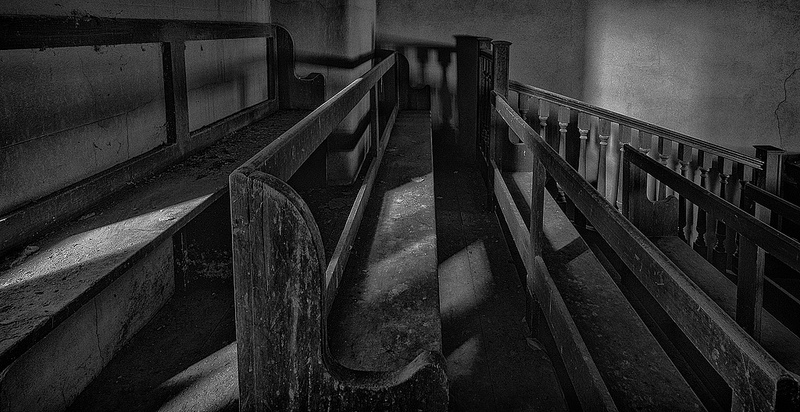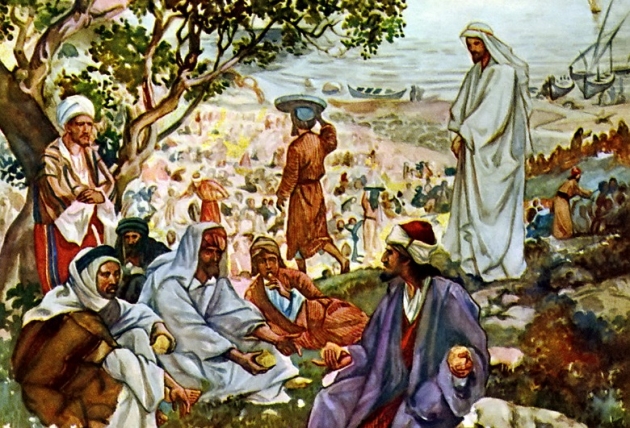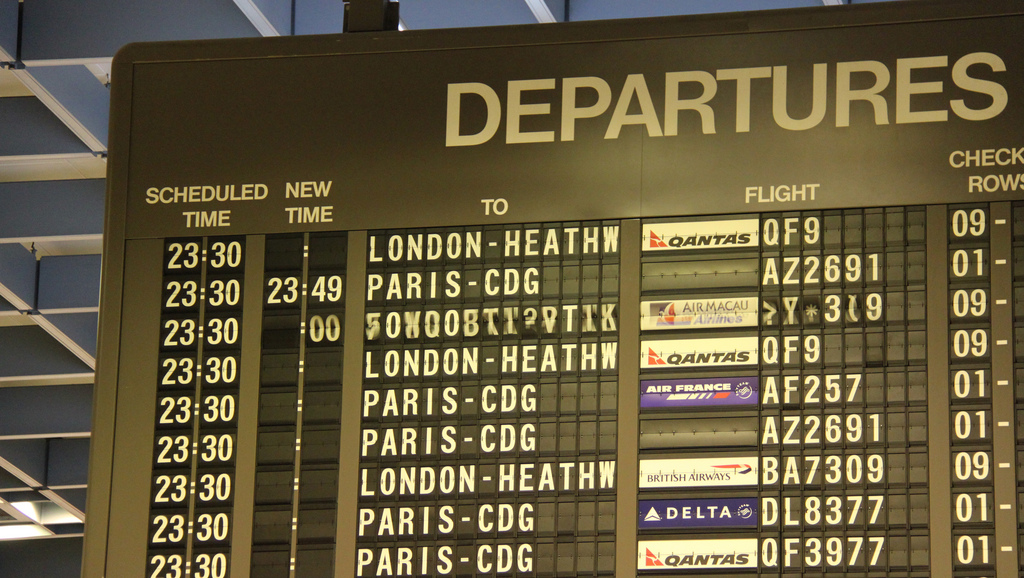 I barely went to Church for quite a while last year and spent a lot less time praying. Sure, I would throw out an occasional “God please help me” or “please bless so-and-so through such-and-such,” but I did not take the time for deep, contemplative prayer or conversation with God. The less I went to Mass and the less I prayed, the less I felt compelled to make any sort of change, all because I naively assumed that God works like the rest of the world. Sadly, this did not mark the first time I experienced such a “dry spell” in my faith.
I barely went to Church for quite a while last year and spent a lot less time praying. Sure, I would throw out an occasional “God please help me” or “please bless so-and-so through such-and-such,” but I did not take the time for deep, contemplative prayer or conversation with God. The less I went to Mass and the less I prayed, the less I felt compelled to make any sort of change, all because I naively assumed that God works like the rest of the world. Sadly, this did not mark the first time I experienced such a “dry spell” in my faith.
If you skip class for a few weeks in a row, you are likely going to fall behind your classmates and feel lost when you return. Your instructor may even penalize you with a poor grade. If you ignore phone calls and invitations from a dear friend, she will likely not want to speak to you when you ask her to hang out. If you halt training for a race, your muscles likely won’t be ready to carry you to the finish line on race day. I hadn’t worked my “Catholic muscles” in a long time. If I set aside a substantial amount of time for prayer, how would I fill it? If I returned to Mass, how could I get anything out of it, especially given my current disillusionment with the Church’s treatment of women and LGBTQ persons? Was I even still a part of the Catholic community?
 Yet, as last Sunday’s Gospel from Matthew 20:1-16 shows us, God does not work the way the rest of the world does. In this parable, a landowner goes out at daybreak and hires workers to toil in his vineyard and in exchange agrees to pay them one denarius each. He then goes out and hires more workers at the third hour, the sixth hour, the ninth hour, and finally again at the eleventh hour. At the end of the day, those who were hired at the eleventh hour received the same payment as those who toiled all day. The latter were understandably upset. How unfair! This goes against our notion of what is just. And at the same time it is incredibly comforting because, at one time or another, all of us have been those workers hired at the eleventh hour, the ones who just did not do as much either because we were busy or hurting or did not feel welcome.
Yet, as last Sunday’s Gospel from Matthew 20:1-16 shows us, God does not work the way the rest of the world does. In this parable, a landowner goes out at daybreak and hires workers to toil in his vineyard and in exchange agrees to pay them one denarius each. He then goes out and hires more workers at the third hour, the sixth hour, the ninth hour, and finally again at the eleventh hour. At the end of the day, those who were hired at the eleventh hour received the same payment as those who toiled all day. The latter were understandably upset. How unfair! This goes against our notion of what is just. And at the same time it is incredibly comforting because, at one time or another, all of us have been those workers hired at the eleventh hour, the ones who just did not do as much either because we were busy or hurting or did not feel welcome.
When the workers who toiled all day were angry over such an unjust treatment, the landowner said, “Am I not allowed to do what I choose with what belongs to me? Or do you begrudge me my generosity?” (Matthew 20:15, RSV). God is so generous that God never revokes God’s love for us. Jesus always offers himself to us in the Eucharist, even if we have not been to the table in a long time. He does not portion out more of himself to certain people. With God, we do not have to worry that we “missed out” or that its “too late” or that we are inferior to the guy sitting next to us. God is a constant—always there, always dwelling inside your heart. God will never not be ready for you.
Finally, we must remember that the workers hired at the eleventh hour had been standing around the market place, “Because no one has hired us” (20:7). Many persons have left the Catholic Church and have felt alienated from God due to the priest sex abuse scandal, the ban on women’s ordination, the Church’s failure to bless same-sex relationships, among other issues. But as the theologian Edward Schillebeeckx stated, “the name of God has been misused, but it would be wrong to place all blame for this on Rome.” We must all ask ourselves what we can do to ensure that all truly feel welcome, wanted, and loved in our community. I started going back to Mass this summer after disappearing without explanation for a very long time. Yet, my friends from the Paulist Center welcomed me back with open arms and without judgment—I still feel like I belong. They have set an example for me that I hope to follow.








